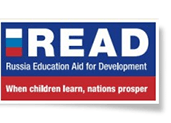A new report on South Asia released today shows that non-state actors are significantly involved in every aspect of education systems in the region – far more than in any other region in the world. Highly competitive education systems and concerns over the quality of public education led to a rise of private education in the form of private schools, private tutoring and, more recently, education technology companies.
The report calls for a review of existing regulations on non-state actors and how they are enforced. While access to education has grown faster than in any other region in the past few decades in South Asia, learning levels are more than one third below the global average and growing more slowly than in the rest of the world. The report recommends that all state and non-state education activities be viewed as part of one system where quality and equity need to be protected.
The report draws on the global comparative research by GEM Report, and the contributions of six partners from the region: BRAC (Bangladesh); the Institute for Integrated Development Studies (Nepal); the Institute of Policy Studies (Sri Lanka); Idara-e-Taleem-o-Aagahi (Pakistan); the Center for Policy Research (India); and Central Square Foundation (India). Combining experiences from Afghanistan, Bangladesh, Bhutan, India, the Islamic Republic of Iran, Maldives, Nepal, Pakistan and Sri Lanka, the report looks at how equity objectives have been challenged by the advent of private education and where positive practices have successfully created cohesion across all actors.
Please download the report here.







